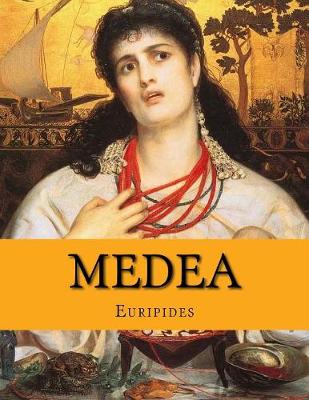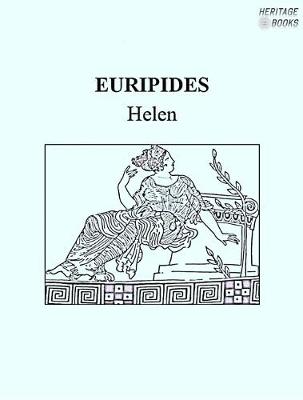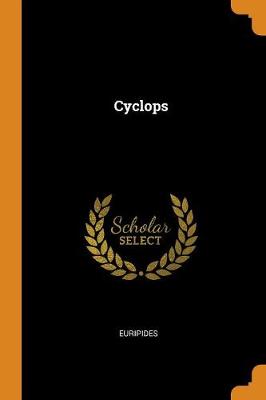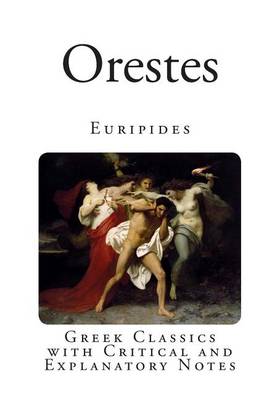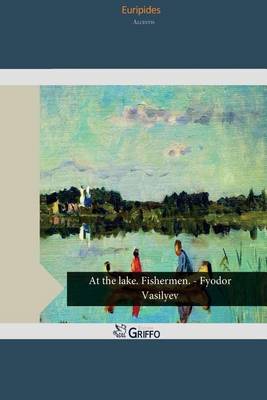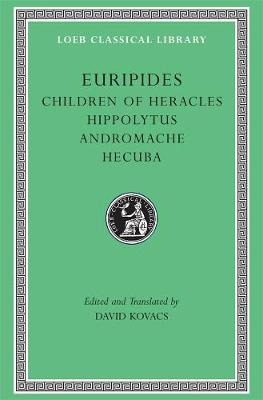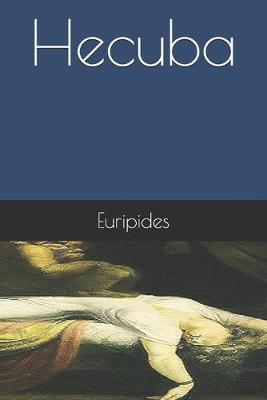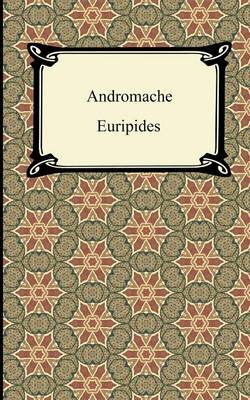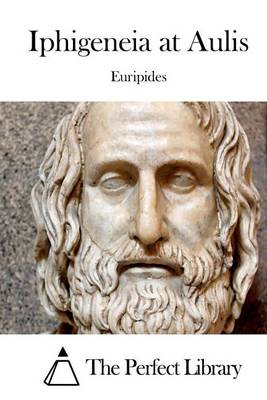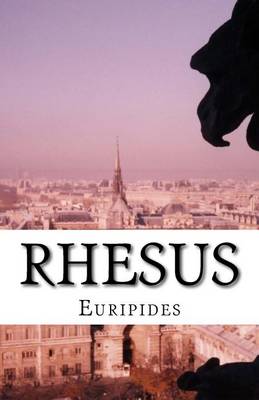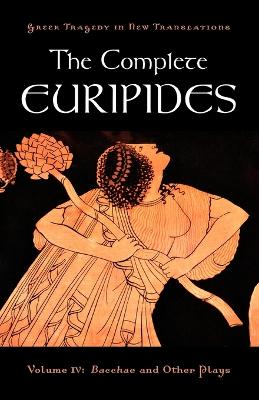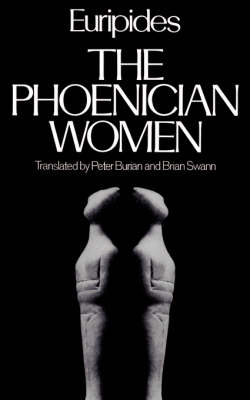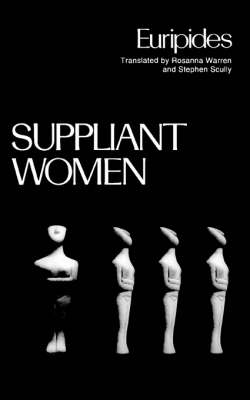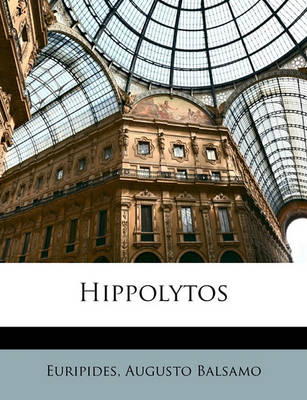The Greek Tragedy in New Translations
24 total works
From the myth ascribed to the Sicilian poet Stesichorus, Helen plays on the question of two Helens: one a phantom in Troy, and the other the real Helen who remained in Egypt. A myriad of reversals, thought-provoking examples of differing orders of reality, and juxtapositions of opposites, allow Euripides to comment on the futility of war and the distinction between appearance and reality.
origins, development, and decline; the place of satyrs in the religious imagination and practice of the Greeks, and the significance of Euripides' divergences from the Homeric model, are also examined. The commentary looks closely at problems of text, language, and interpretation.
This edition of Euripides' Iphigenia in Tauris includes an introduction, the Greek text, detailed commentary and a metrical scheme. it was originally published in 1938 and aimed at undergraduates and scholars.
The late William Arrowsmith, who was an eminent classical scholar, translator, and General Editor of this highly praised series, rejects the standard view of the Alcestis as a psychological study of the egotist Admetos and his naive but devoted wife. His translation, instead, presents the play as a drama of human existence-in keeping with the tradition of Greek tragedy-with recognizably human characters who also represent masked embodiments of human conditions. The
Alcestis thus becomes a metaphysical tragicomedy in which Admetos, who has heretofore led a life without limitations, learns to "think mortal thoughts." He acquires the knowledge of limits-the acceptance of death as well as the duty to live-which, according to Euripides, makes people meaningfully human and capable of
both courage and compassion. This new interpretation compellingly argues that, for Euripides, suffering humanizes, that exemption makes a man selfish and childish, and that only the courage to accept both life and death leads to the realization of one's humanity, and, in the case of Alcestis, to heroism.
One of Athens' greatest poets, Euripides has been prized in every age for the pathos, terror, surprising plot twists, and intellectual probing of his dramatic creations. Here are four of his plays in a new Loeb Classical Library edition.
Hippolytus triumphed in the Athenian dramatic competition of 428 BCE; in modern times it has been judged to be one of Euripides' masterpieces. It tells of the punishment that the goddess Aphrodite inflicts on a young man who refuses to worship her. Hecuba and Andromache recreate the tragic stories of two noble Trojan women after their city's fall. Children of Heracles, probably first produced in 430, soon after the Spartan invasion of Attica, celebrates an incident long a source of Athenian pride: the city's protection of the sons and daughters of the dead Heracles.
In this second volume of the new Loeb Euripides David Kovacs gives us a freshly edited Greek text facing an accurate and graceful prose translation. Explanatory notes clarify allusions and nuances, and a brief introduction to each play is provided.
This work has been selected by scholars as being culturally important, and is part of the knowledge base of civilization as we know it. This work was reproduced from the original artifact, and remains as true to the original work as possible. Therefore, you will see the original copyright references, library stamps (as most of these works have been housed in our most important libraries around the world), and other notations in the work.
This work is in the public domain in the United States of America, and possibly other nations. Within the United States, you may freely copy and distribute this work, as no entity (individual or corporate) has a copyright on the body of the work.
As a reproduction of a historical artifact, this work may contain missing or blurred pages, poor pictures, errant marks, etc. Scholars believe, and we concur, that this work is important enough to be preserved, reproduced, and made generally available to the public. We appreciate your support of the preservation process, and thank you for being an important part of keeping this knowledge alive and relevant.
A stern critique of Greek culture, Iphigeneia at Aulis condemns the Trojan War by depicting the power of political ambition and the ensuing repercussions of thoughtlessly falling to the will of constituency. The translation impressively re-creates the broad array of moral and emotional tones conveyed by Euripides, with a comprehensive introduction, notes on the text, and a glossary of mythical and geographical terms.
This school edition of passages from two plays of Euripides, originally published by Macmillan, is furnished with introduction, notes, vocabulary and useful summaries of the lines and choruses omitted. The "Helen" in particular is suitable for use at GCSE level.
In this exciting translation, Rhesos is no longer treated as a derivative Euripidean work, but rather as the tightly-knit tragedy of knowledge it really is. A drama in which profound problems of fate and free will come alive, Rhesos is also an exploration of the perversion of values that come as the result of war. Charged with a striking immediacy, this play is contemporary in the questions it raises, and eternal in its quest for truth.
disturbing interpretation of the fate of the House of Laios following the tragic fall of Oedipus. These three tragedies were originally available as single volumes. This volume retains the informative introductions and explanatory notes of the original editions and adds a single combined glossary and Greek line numbers.
introduction, commentary on the text, full stage directions, and a glossary of the mythical and geographical references in the plays.
This vital translation of Euripides' Electra recreates the prize-winning excitement of the original play. Electra, obsessed by dreams of avenging her father's murder, impatiently awaits the return of her exiled brother Orestes. When he arrives, the play mounts toward its first climax, a tender recognition scene. From that moment on, Electra uses Orestes as her instrument of vengeance. They kill their mother's husband, then their mother herself-and only afterward see the evil
inherent in these seemingly just acts. But in his usual fashion, Euripides has imbued myth with the reality of human experience, counterposing suspense and horror with comic realism and down-to-earth comments on life.
Adding to the impressive Greek Tragedy in New Translations series, this translation displays the cohesion and rigid organization of this complex and much debated play. Through use of dramatic, fast-paced poetry, this version captures the original spirit of Euripides' focus on classic repercussions of fate, interspersed with the everpresent power of will. The edition is accompanied by critical introductions, expositions of translators' principles, stage directions, a glossary of mythical Greek terms, and commentary on difficult passages.
discussion of the play's subject-matter and dramatic context.
The text is based on new collations of the medieval manuscripts (two of them hitherto uncollated) and on all known papyri. The Introduction contains a reappraisal, in the light of the evidence of the papyri, of the history of the text in antiquity, and advances a new account of the relationship between the medieval manuscripts. There is also a full discussion of the early history of the legend and of the two lost tragedies on the same theme.

